Description
ABSTRACT
Legality of the Privatization of Personal Income Tax Collection in Nigeria Appraised
Chizoba Okeke-Ogugua*
Several developing economies including Nigeria, have embarked on privatization in the course of their economic development because of its effective economic restructuring. In a bid to effectively shore its internally generated revenue in the 90s, the Nigerian Government privatized its tax collection function to tax consultants in return for a fixed sum of money or ad valorem fee. Another major reason for outsourcing tax collection by the Nigerian government was to enable the government to focus on its core growth drivers while relying on the efficiency and strategic business benefits resulting from privatization. Subsequently, outsourcing tax collection was banned in Nigeria. However, given the high incidence of tax evasion among taxpayers in the informal sector, and the need to harness the benefits of privatization in tax revenue collection, this paper seeks to examine the issues and the legal implications for outsourcing collection of personal income tax with a view to proffering solutions on how best to boost the nation’s internally generated revenue.
Keywords: Outsourcing, Privatization, Internally Generated Revenue, Tax Evasion, Tax Collection, Tax Consultants.
INTRODUCTION
Payment of tax is a civic responsibility owed by citizens to the government of their country because through tax revenue, governments of countries can fund its developmental goals and moderate their economic growth. However, it has been observed with dismay that a huge amount of tax revenue is lost by the government of Nigeria on daily basis majorly from the self-employed populace. This is because opportunities for evading and avoiding payment of tax are more pronounced among this category of taxpayers since they are not under the withholding tax system as those in formal employment.
In Nigeria, the propriety of outsourcing tax collection had been the subject of controversy, more especially, because of the practices of consultants variously engaged to help shore up internally generate revenues (IGRS) from taxes, rates and levies.
The Holy Scripture has shown that the desire of God is that all mankind should benefit from the resources He has created and this was why He reminded Moses that there would always be the poor in the land flowing with milk and honey that they had been promised.1 It is this reality that the human society will always be a composition of those who have and those who do not have, that made emerging civilizations to put in place a tax system that will enable those who have to provide for those who do not have.2
* Research Fellow, Nigerian Institute of Advanced Legal Studies, Abuja, Nigeria.
- S Lekan and S Kajola. Taxation Principles and Practice in Nigeria (Silicon Publishing Company 2006) 2.
- ibid.

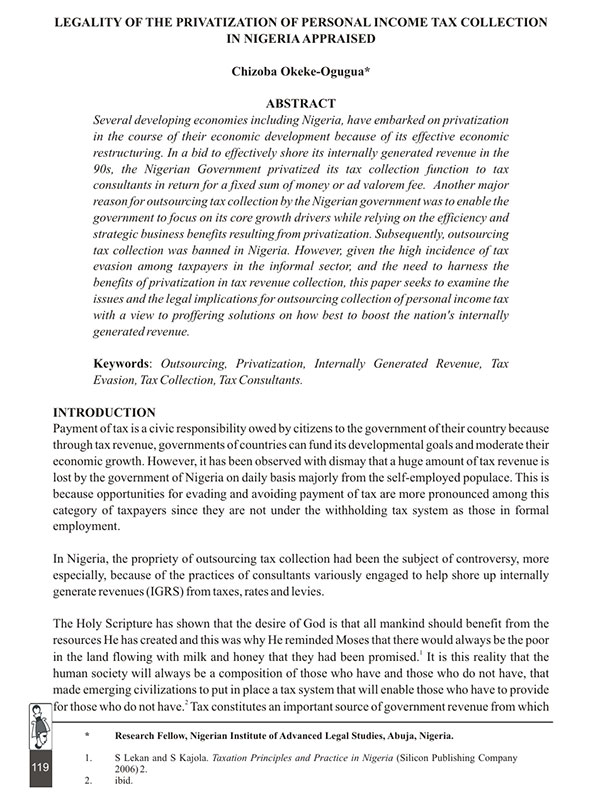
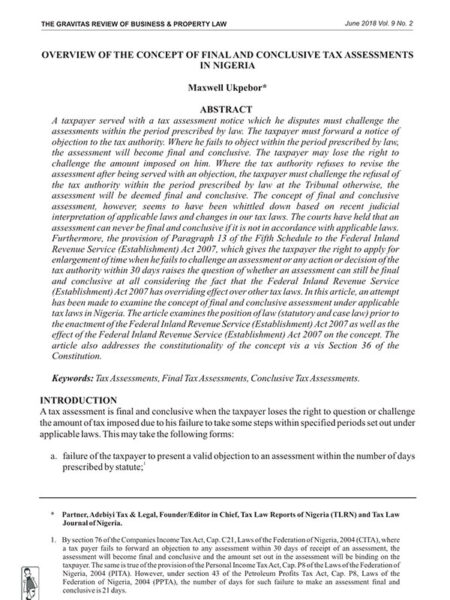
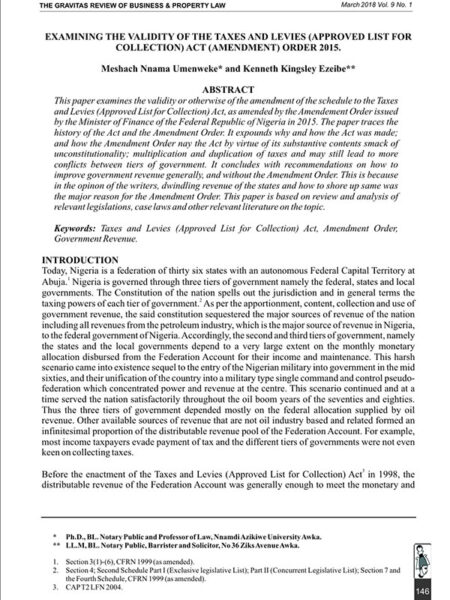
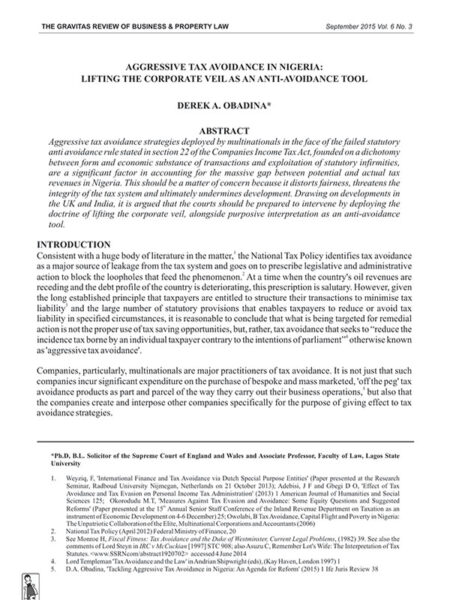
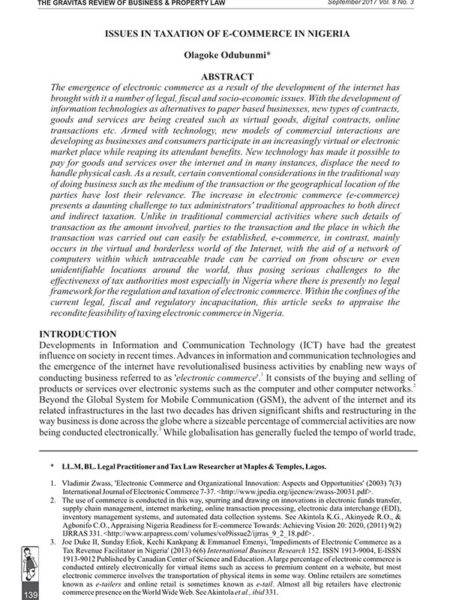


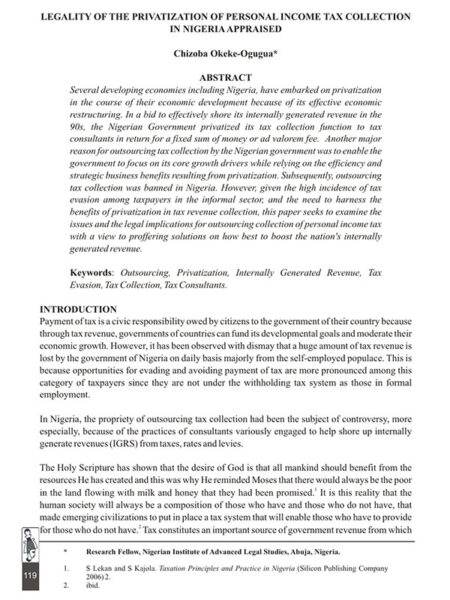
Reviews
There are no reviews yet.